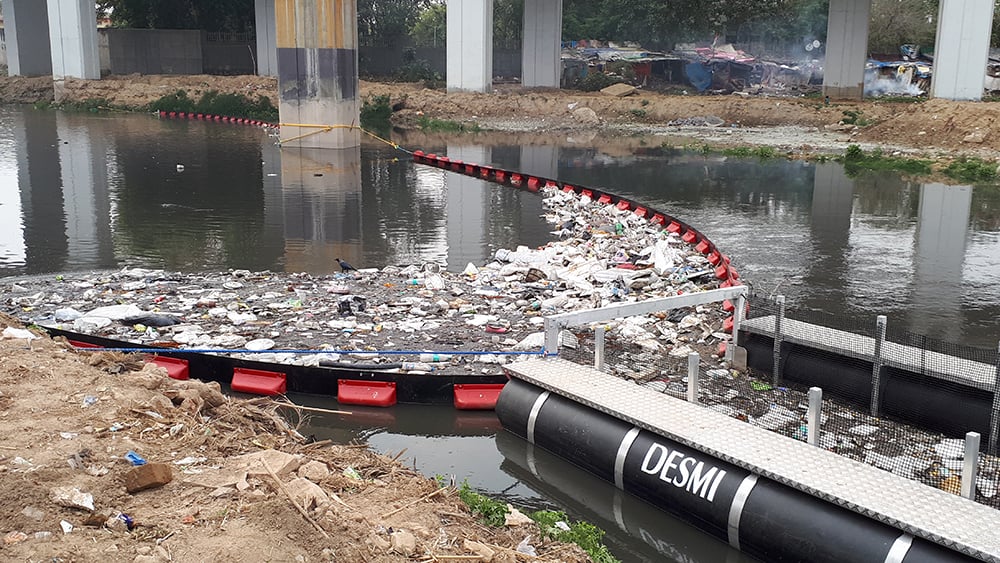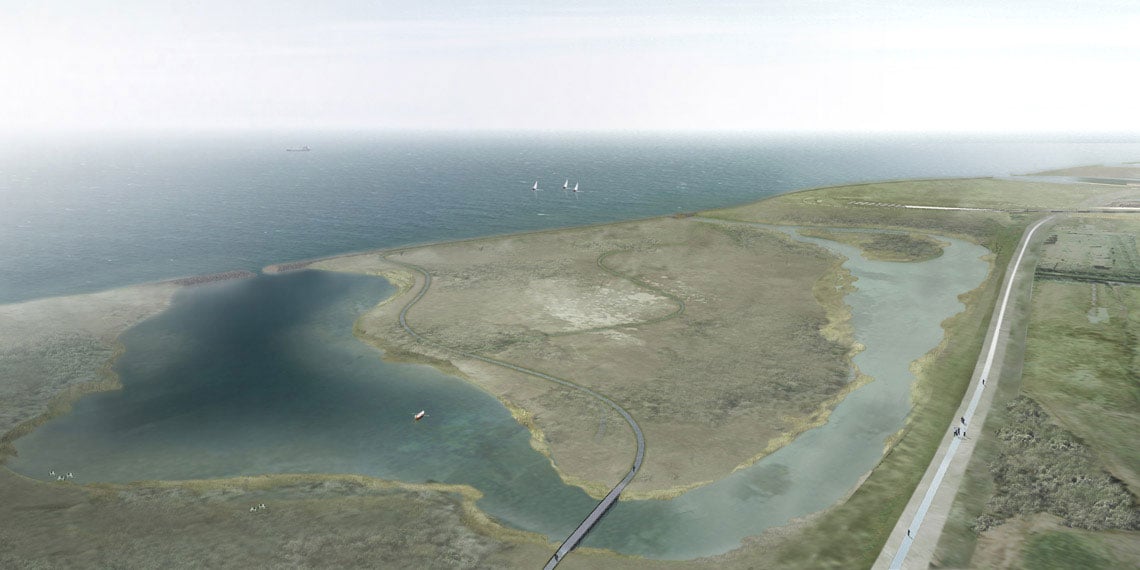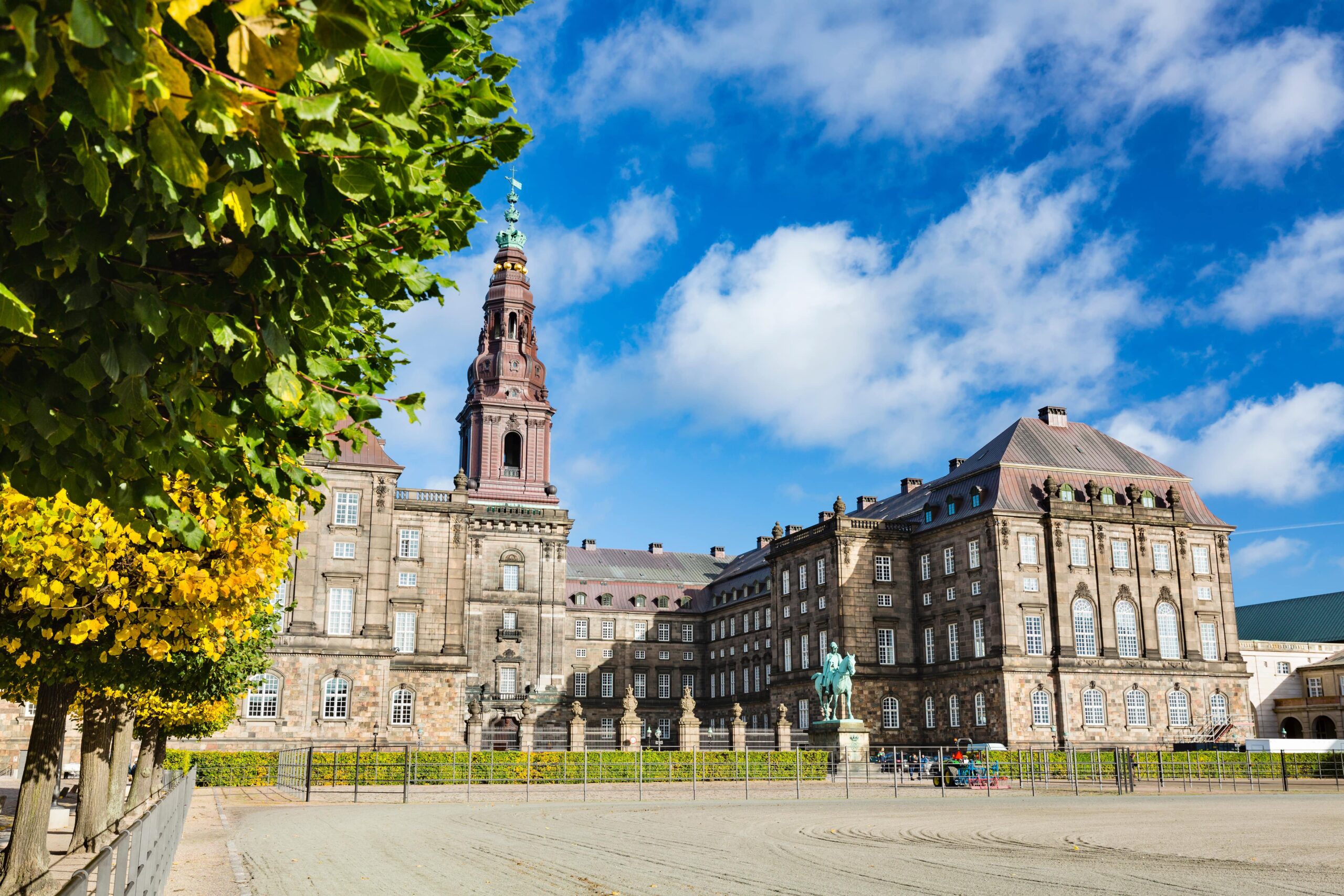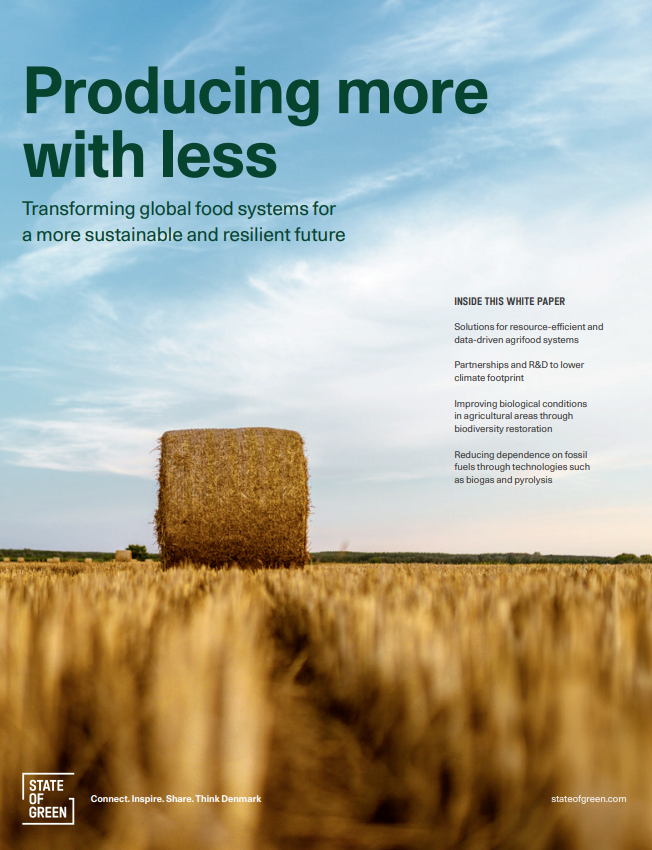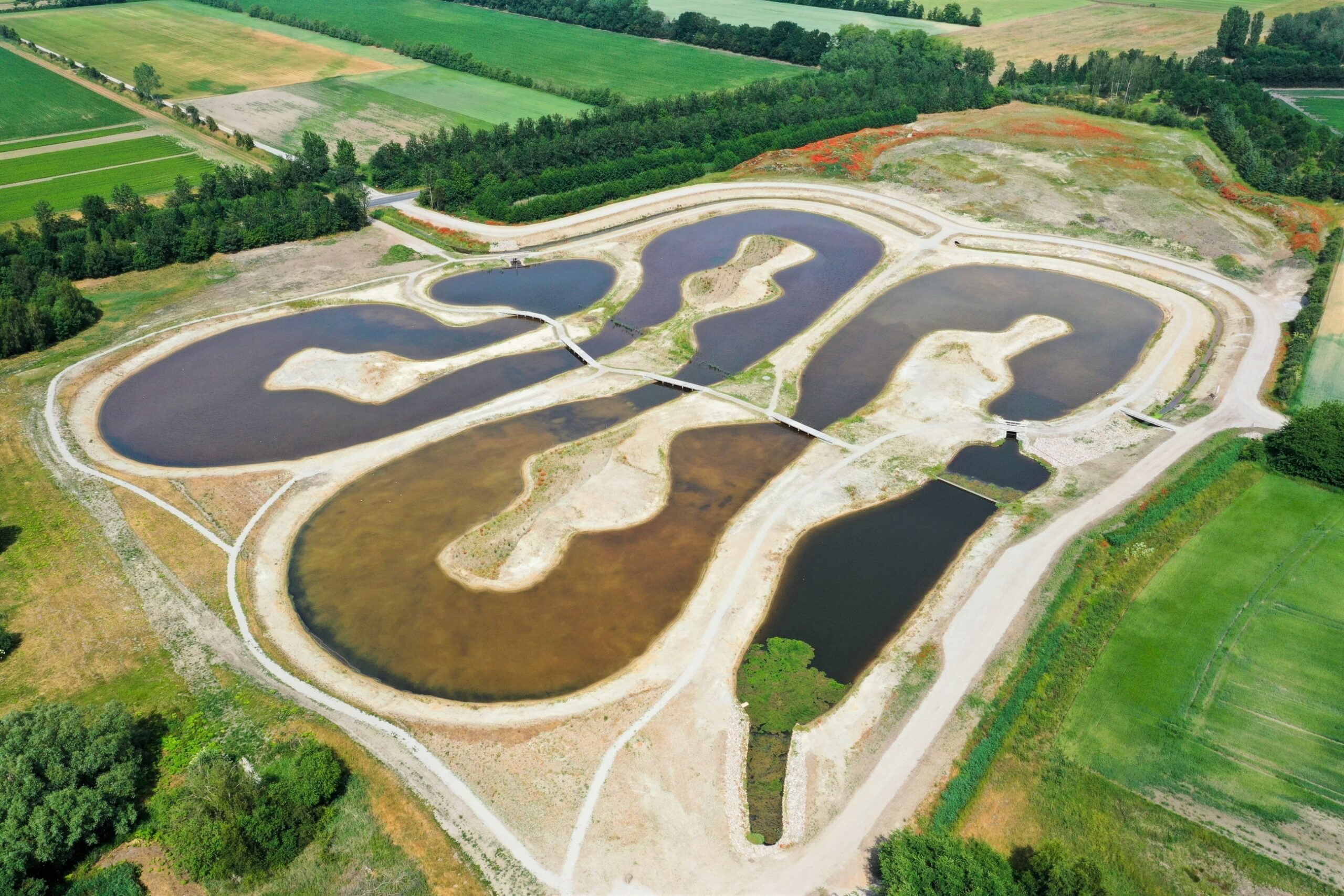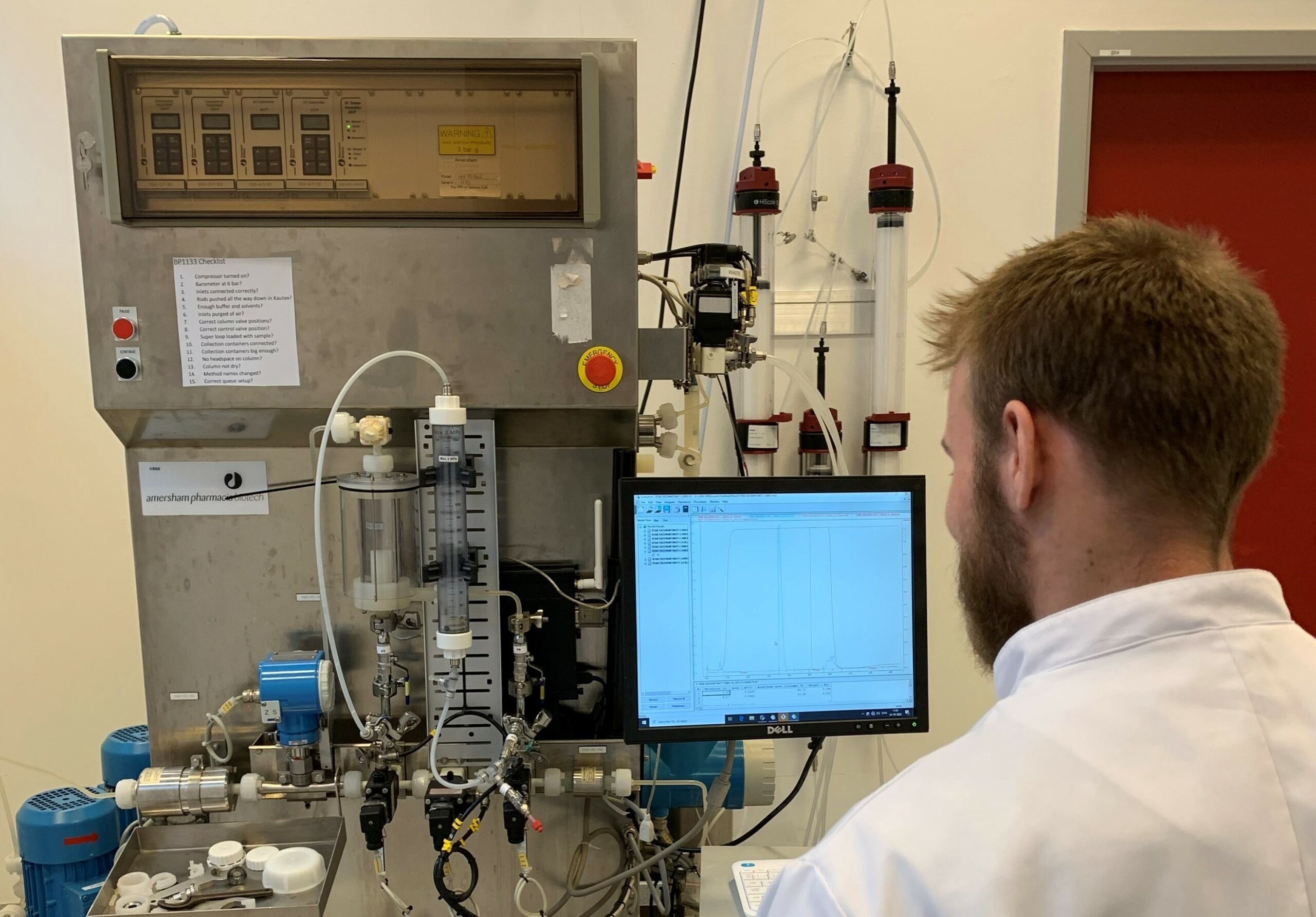News
Circular business models
Circular value chains
Climate change adaptation
+3
Aalborg project hailed as one of Denmark’s most innovative green projects
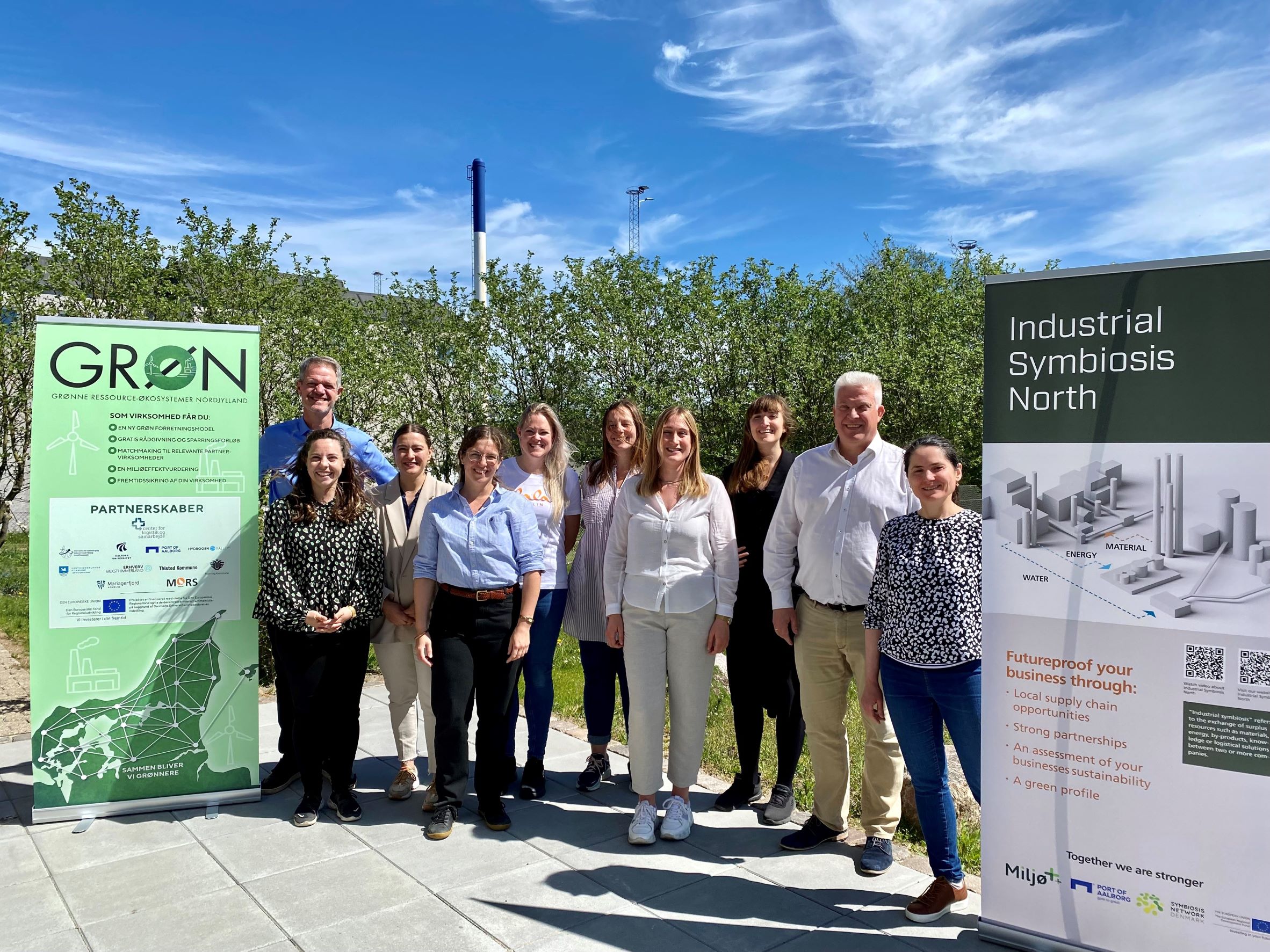

Børsen Sustainable Cases has just selected GRØN as one of the most innovative projects in Denmark driving the green transition. This is hugely significant for North Jutland business development.
Through Børsen Sustainable Cases, the Børsen daily financial newspaper will pay tribute to the companies that via specific, sustainable projects advance the green transition practically, both on a local and national level. The projects must meet a number of eligibility criteria, and Port of Aalborg and a number of Northern Jutland companies are included in one of the 50 selected projects, GRØN.
The number of nominated projects far exceeded our expectations, and it has been an enormous task for the editorial office in collaboration with our advisory board to select those projects that are optimally scalable, business-critical and have a positive impact on the wider world, according to Børsen’s explanation.
GRØN: New green business model ensuring the future of SMEs
With a recommendation from the Danish Business Promotion Board and grants from the European Regional Fund and the decentralised business promotion funds, the project aims to future-proof North Jutland’s SMEs through industrial symbiosis. The new green business model shall improve competitiveness through the resource and energy savings attained from industrial symbioses. The project is based on strong partnerships and solid collaboration across industries that bring North Jutland closer together. GRØN sets new standards for involving and supporting small and medium-sized enterprises throughout the entire process from maturation to implementation, enabling the companies to subsequently maintain the environmental and business improvements themselves.
Green transition can be confusing for small and medium sized enterprises. However, this does not need to be the case. SMEs in North Jutland need to know that there is help available via fruitful collaborations across the private and public sectors. Thanks to GRØN’s collaboration between such partners as AAU, the municipalities of Thisted, Mariagerfjord, Hjørring, Vesthimmerland and Morsø, along with Business Growth Himmerland and Mariagerfjord Business Council, as well as Hydrogen Valley, and the Network for Sustainable Business Development North Jutland, companies can avail of professional help to both get started and cultivate a greener profile through partnerships. This has been invaluable to companies in the project. The results attained over the past year and a half are clear evidence that through a strong partnership we become greener together – Lucia Mortensen, Project Manager at GRØN.
By creating collaboration between SMEs in the establishment of industrial symbioses, GRØN involves and engages the participating SMEs in an exchange of materials, water, energy, etc. It creates synergies and strengthens value chain collaboration between SMEs across sectors. Moreover, GRØN documents that this form of collaboration matures companies and prepares them to progress to green transition and the circular economy. Project Director Lars Jøker points out that GRØN creates new product and market opportunities by facilitating the development of buy-back schemes, business models based on services rather than product sales and design-for-disassembly solutions, as well as other types of product development that can be employed in the future to recruit new companies at Port of Aalborg.
Read more about industrial symbioses at www.industrielsymbiosenord.com.
Great significance for sustainable business development in North Jutland
How can private enterprises, ports, municipalities and universities work together to strengthen green transition while still increasing the competitiveness of the companies? This issue has been the focus of several fora in recent years.
Port of Aalborg’s active participation in green transition has long been” License to Operate”, and GRØN is concrete proof that green transition does not come at the expense of quality and liquidity. With a foundation based on partnerships, stakeholders can play a significant role in the green transition without compromising on their competitiveness. On the contrary, it is strengthened – Lasse Frimand Jensen, Chairman of Port of Aalborg A/S.
According to the Mayor of Aalborg Municipality, Thomas Kastrup-Larsen, it is crucial that companies, municipalities, educational institutions etc. work together on sustainable initiatives. Moreover, that is precisely what the GRØN project exemplifies so well.
I am incredibly proud that we in North Jutland are at the forefront of the work to achieve carbon neutrality by 2030, thereby supporting the UN sustainable development goals. At the same time, it is vitally important for sustainable business development in North Jutland that projects such as GRØN can document the green environmental effects and demonstrate that it is possible to strengthen both companies’ green transition and competitiveness at the same time. This helps to raise North Jutland’s efforts on the green front to new heights for the benefit of both Danish and international companies – Thomas Kastrup-Larsen.
For further information, please contact:
Lucia Mortensen, Project Manager, Port of Aalborg A/S, Tel. +45 40 40 89 47, E-mail: [email protected]
Project selection criteria
The project must be rooted in EU taxonomy, thereby falling under one of the following areas:
- Climate change mitigation
- Climate change adaptation
- Sustainable use and protection of water and marine resources
- Transition to a circular economy
- Pollution prevention and control
- The protection and restoration of biodiversity and ecosystems
In addition, the project must fulfil the following criteria:
- Measurable effect
- Scalable
- Innovative
- Positive impact on the wider world
- Business critical
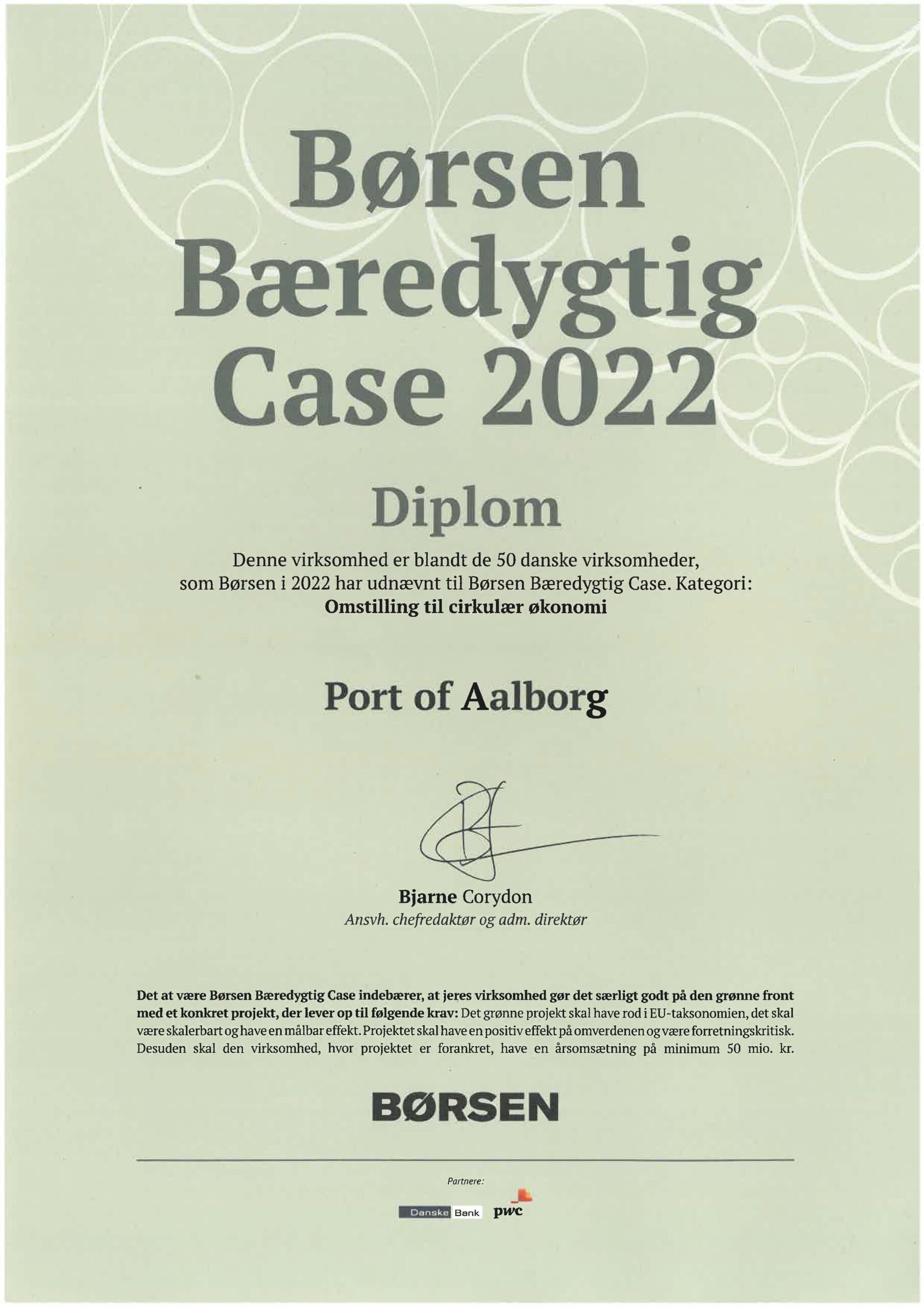
You should consider reading
publications
Resource efficient production
+15
